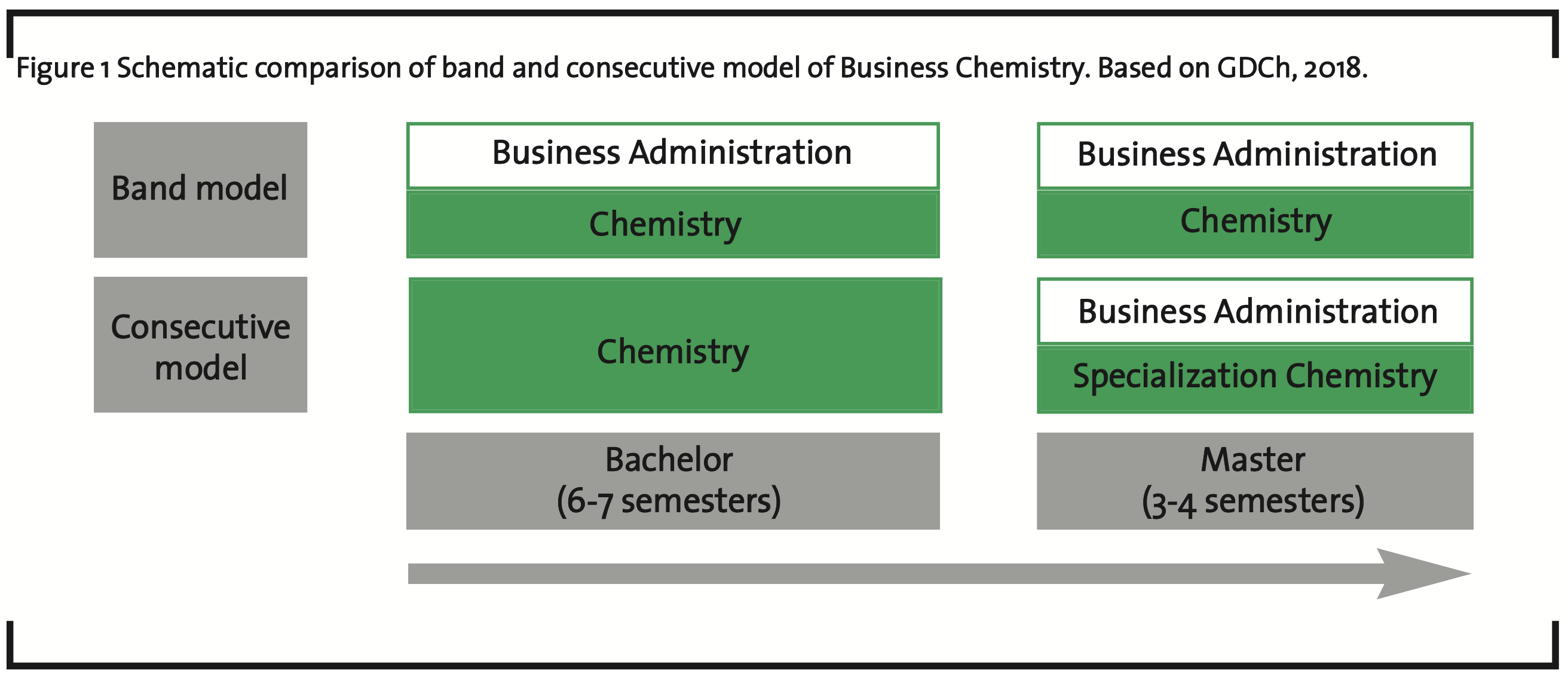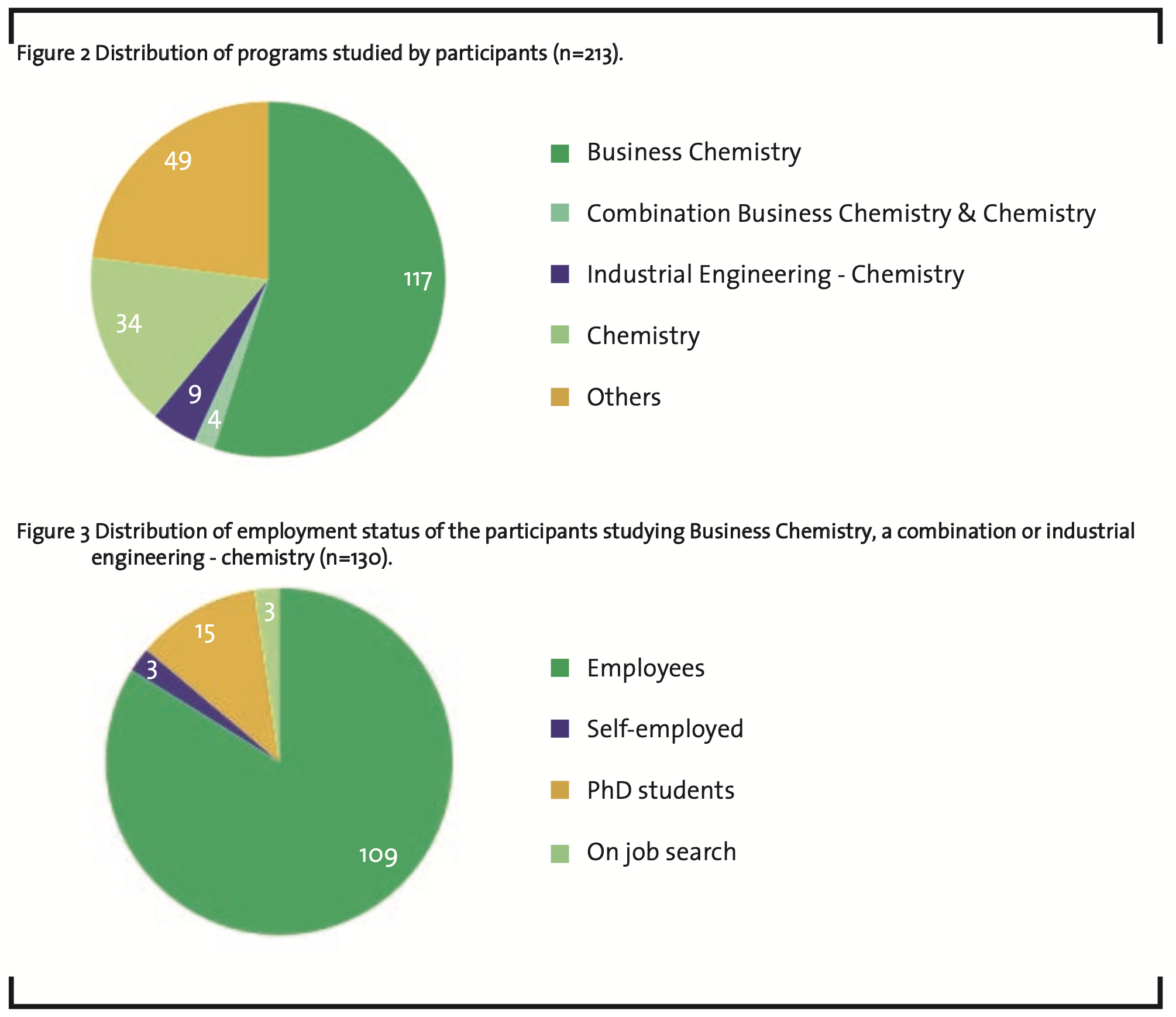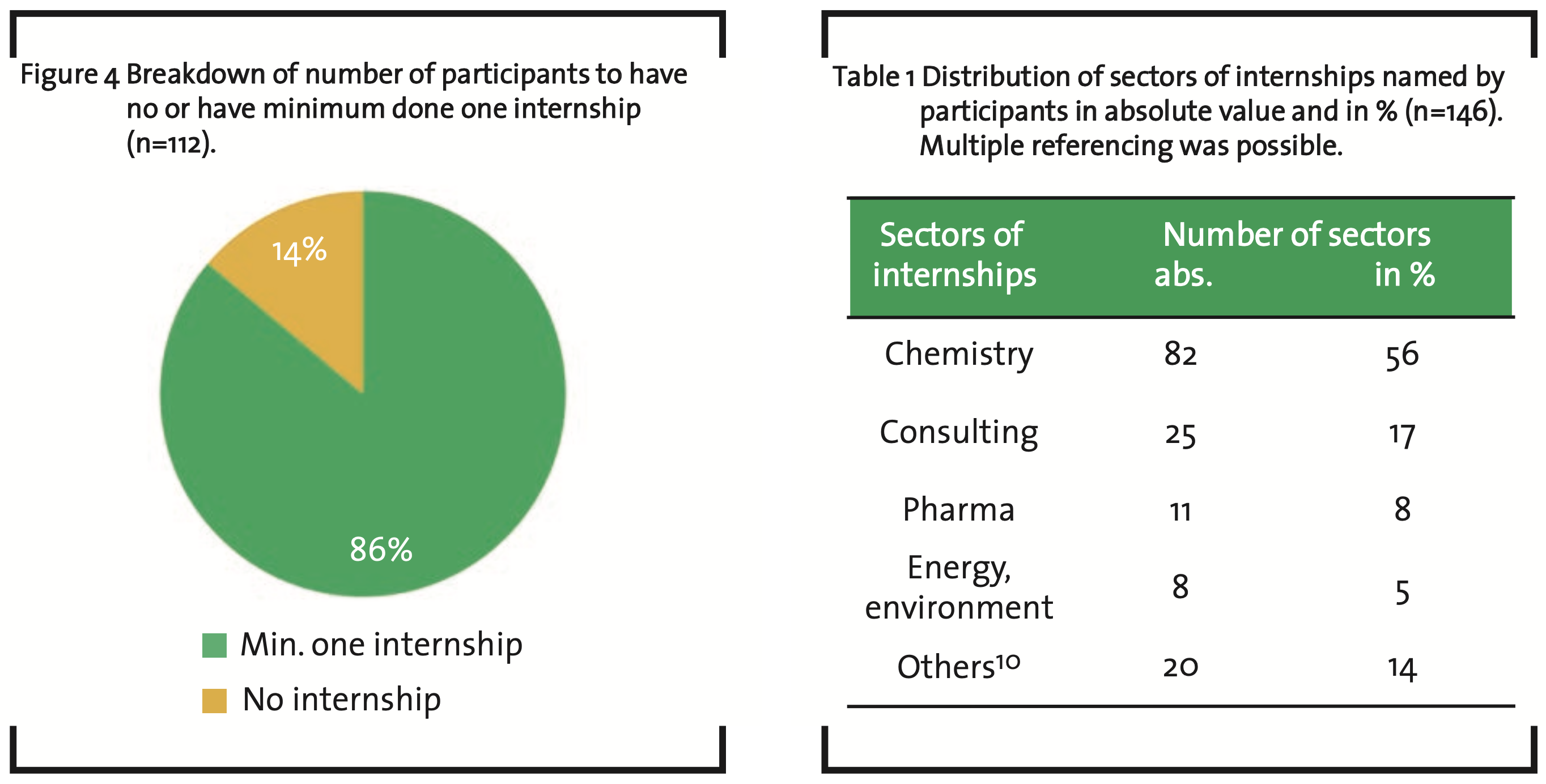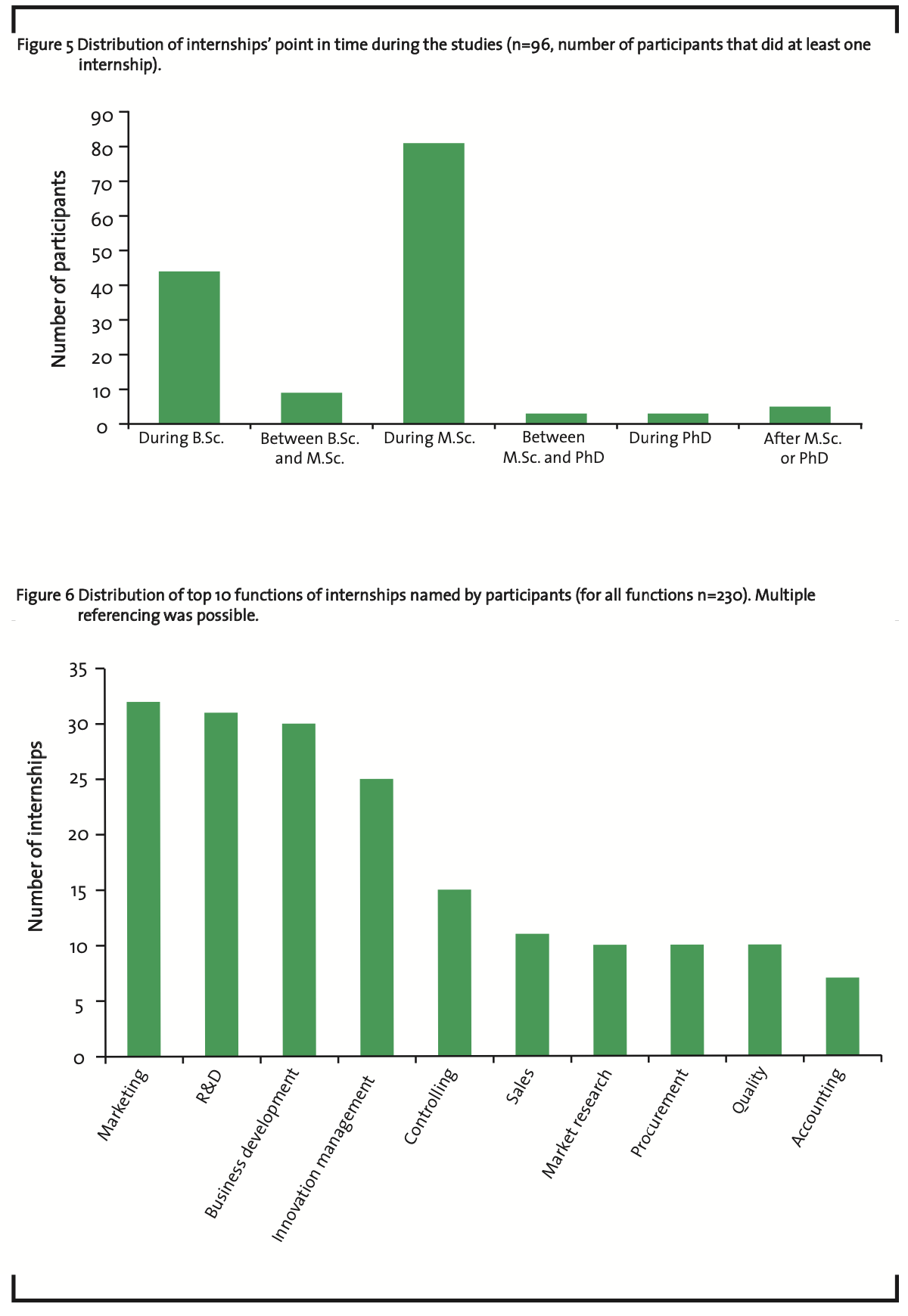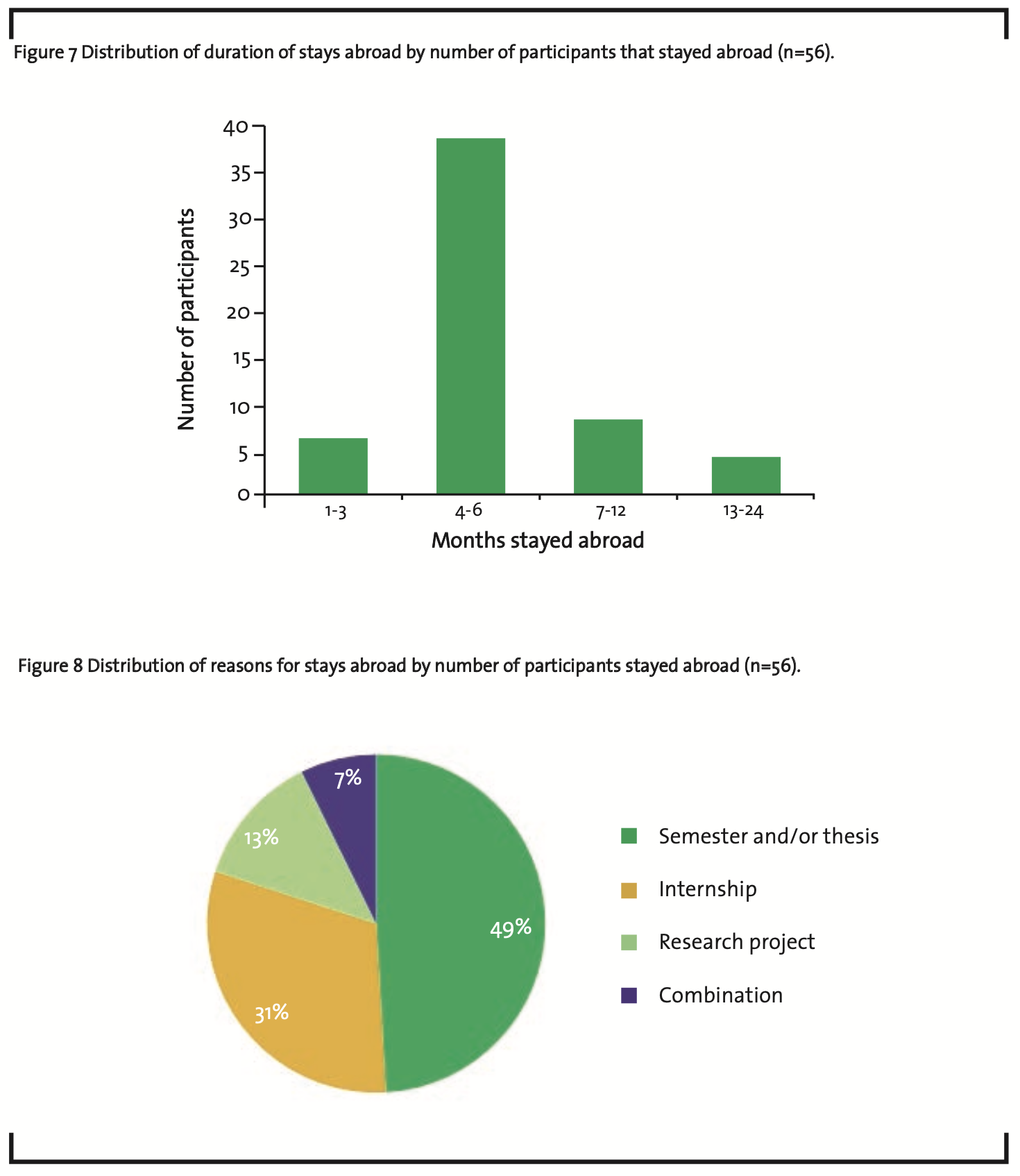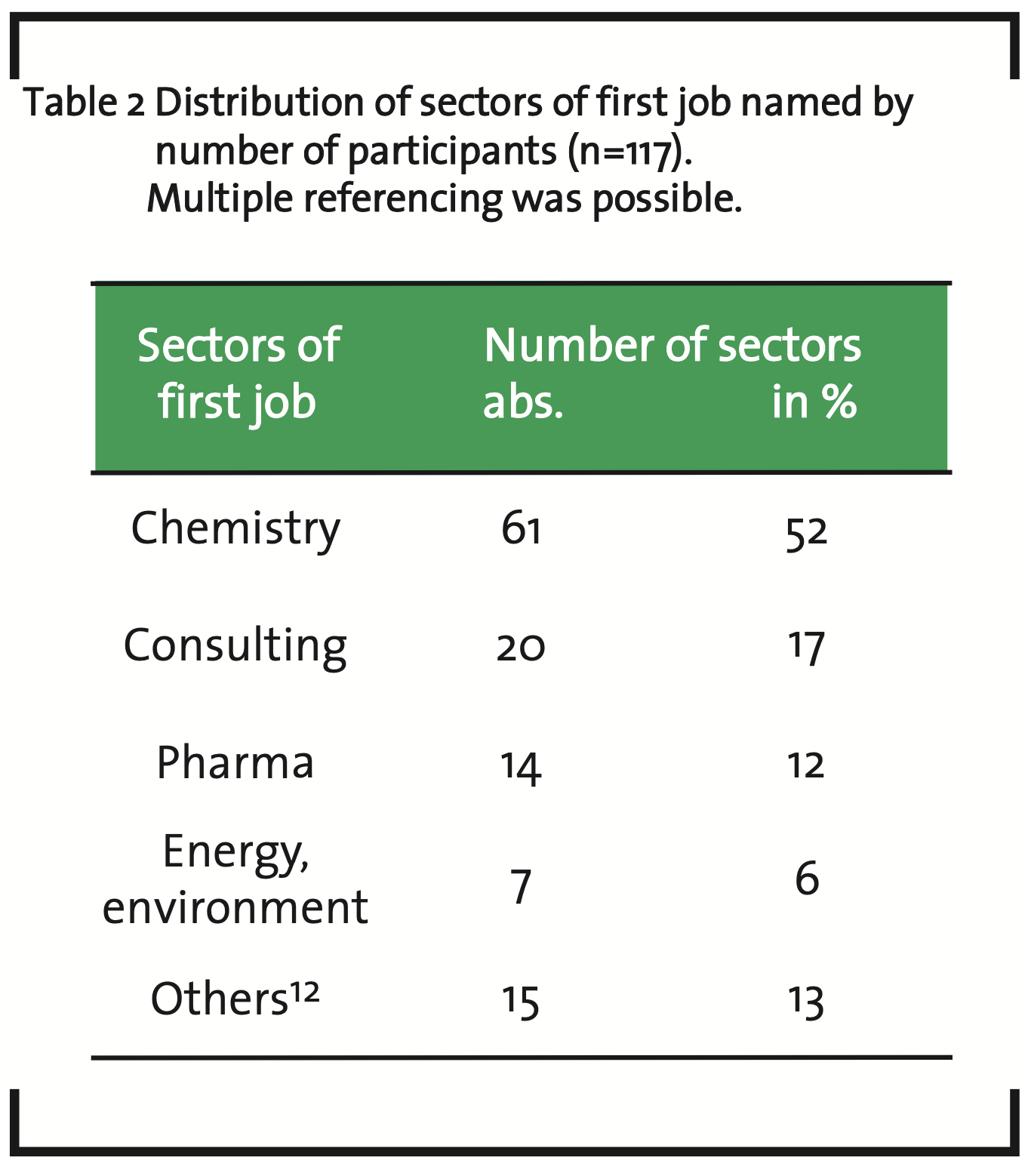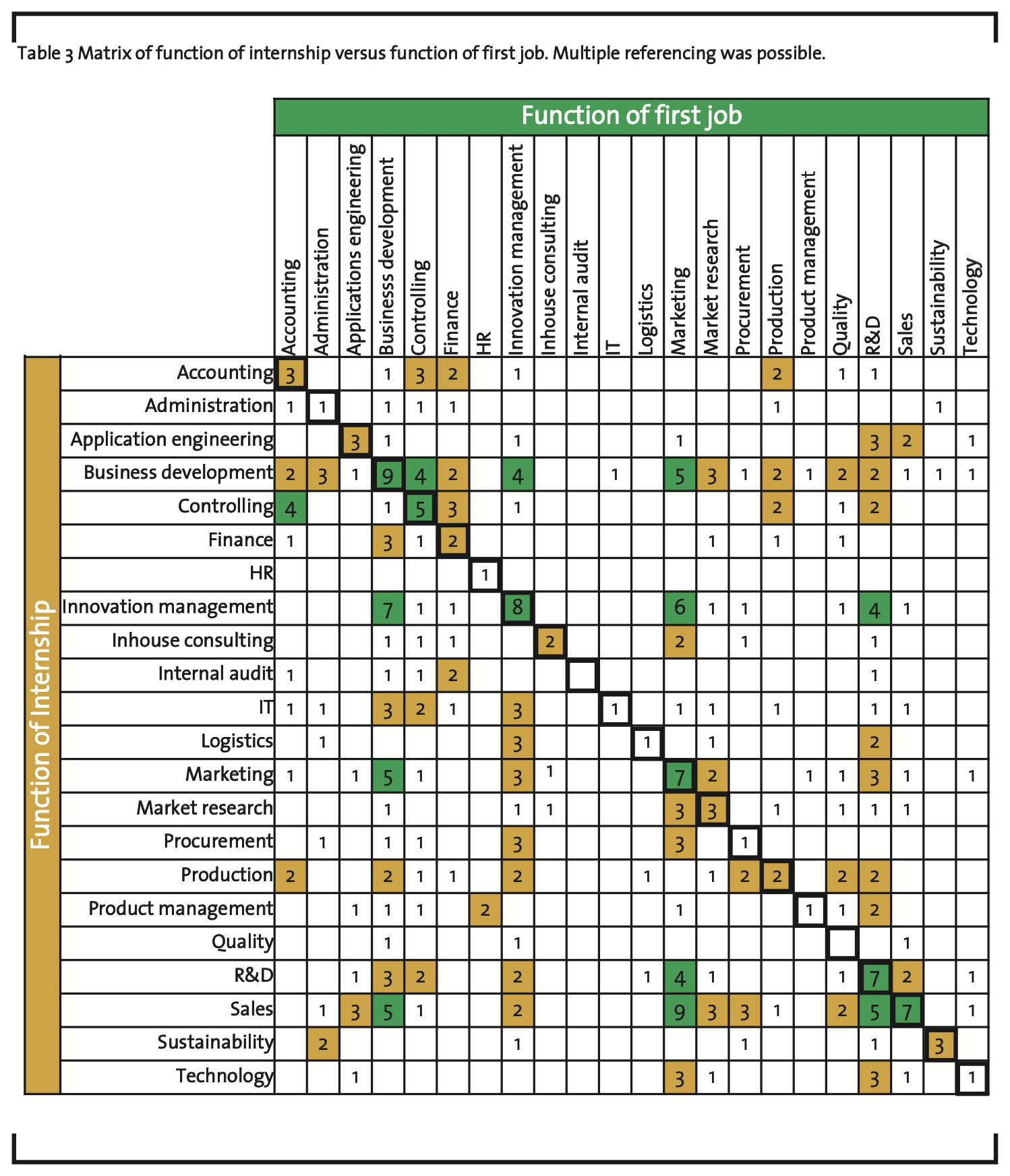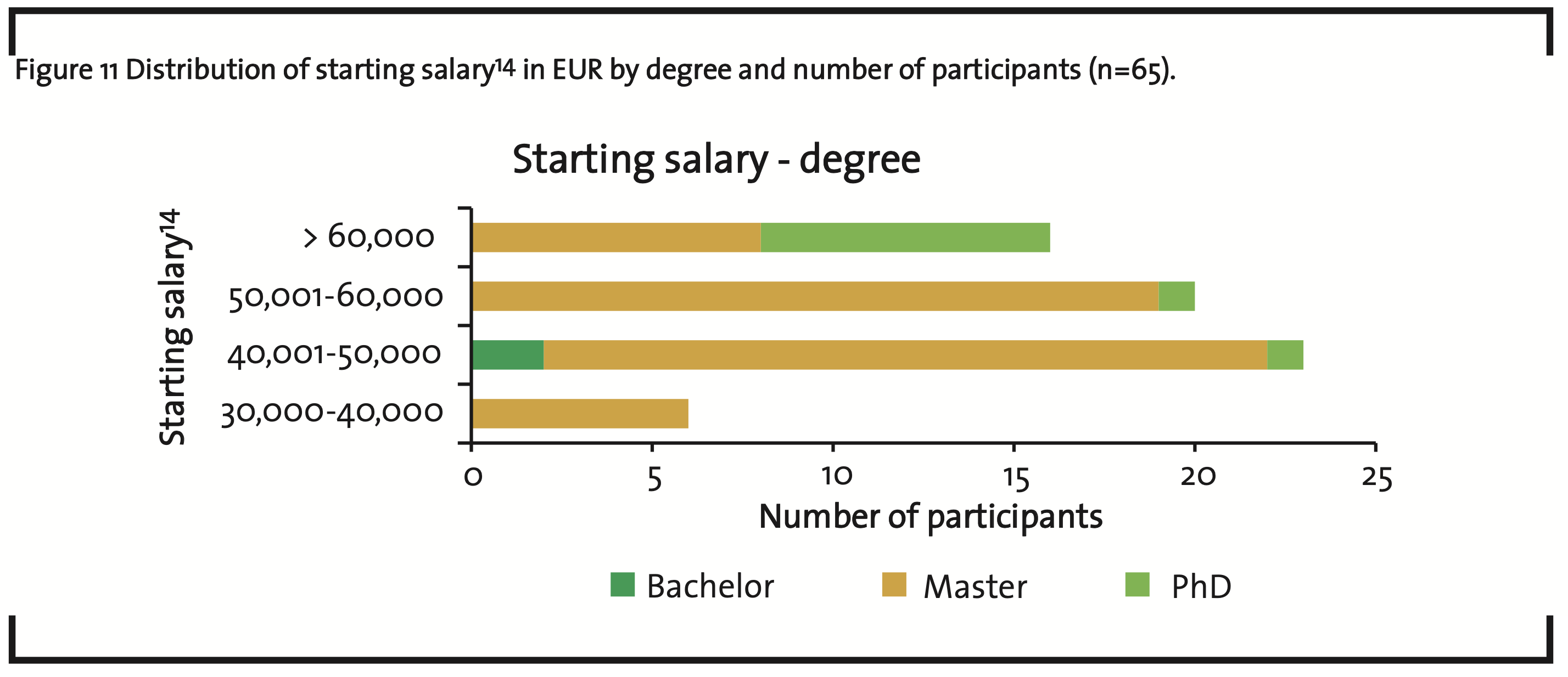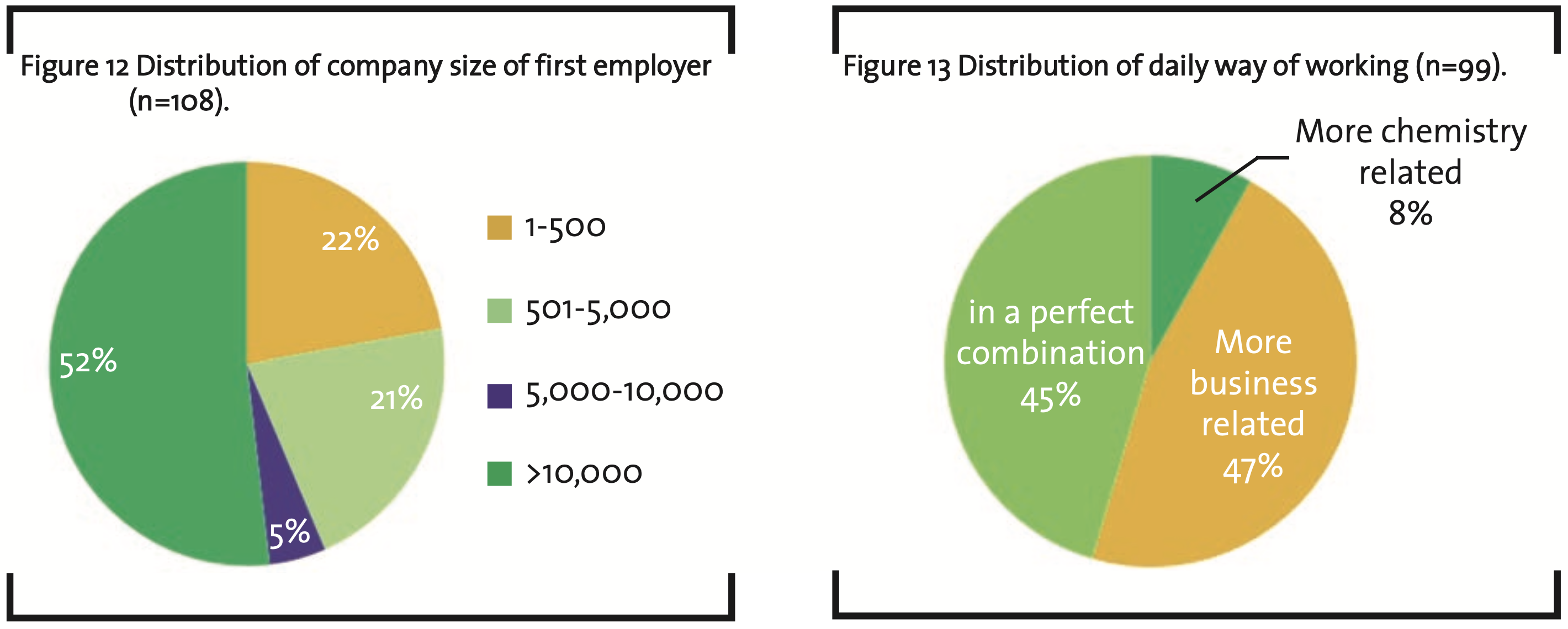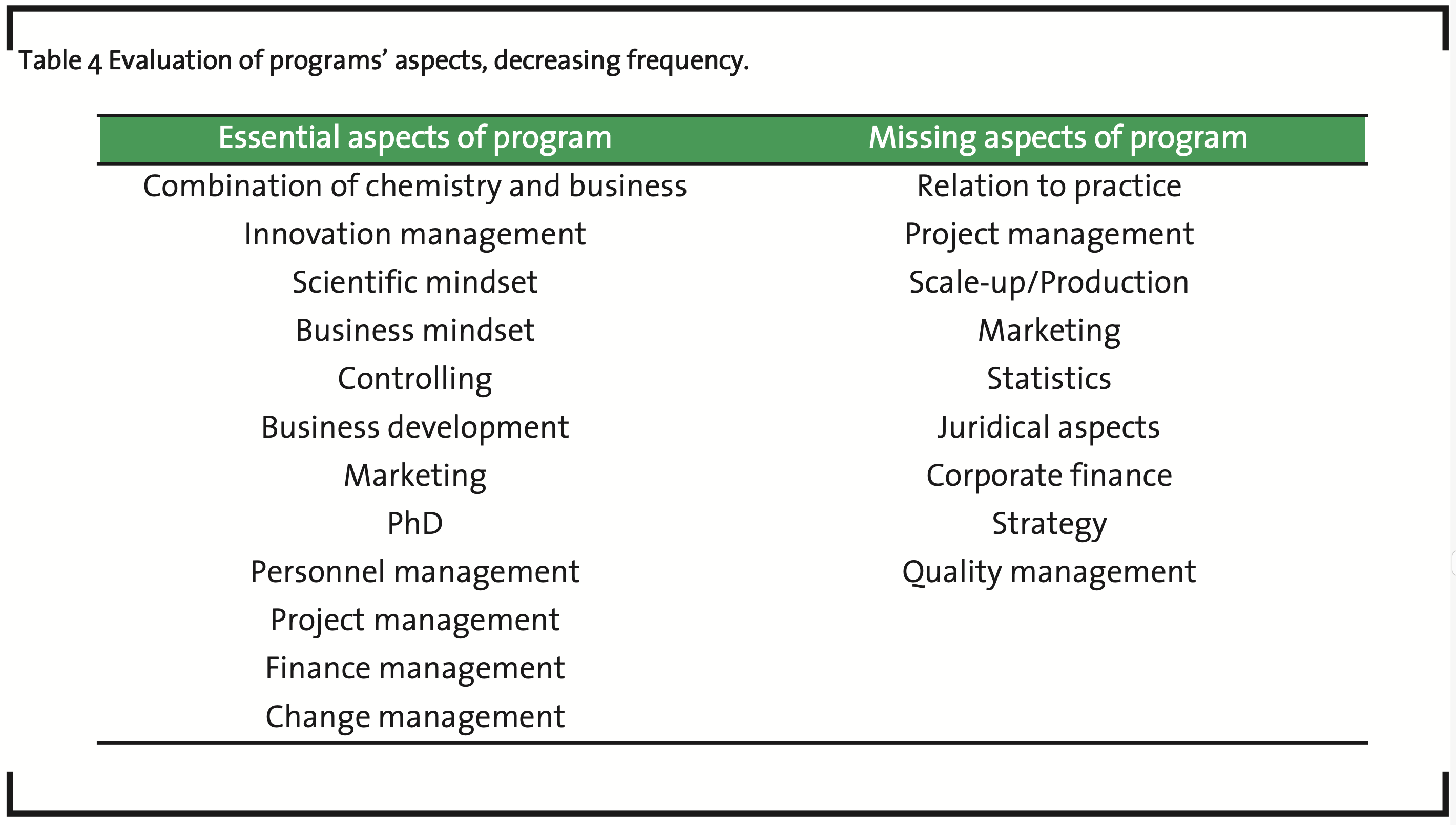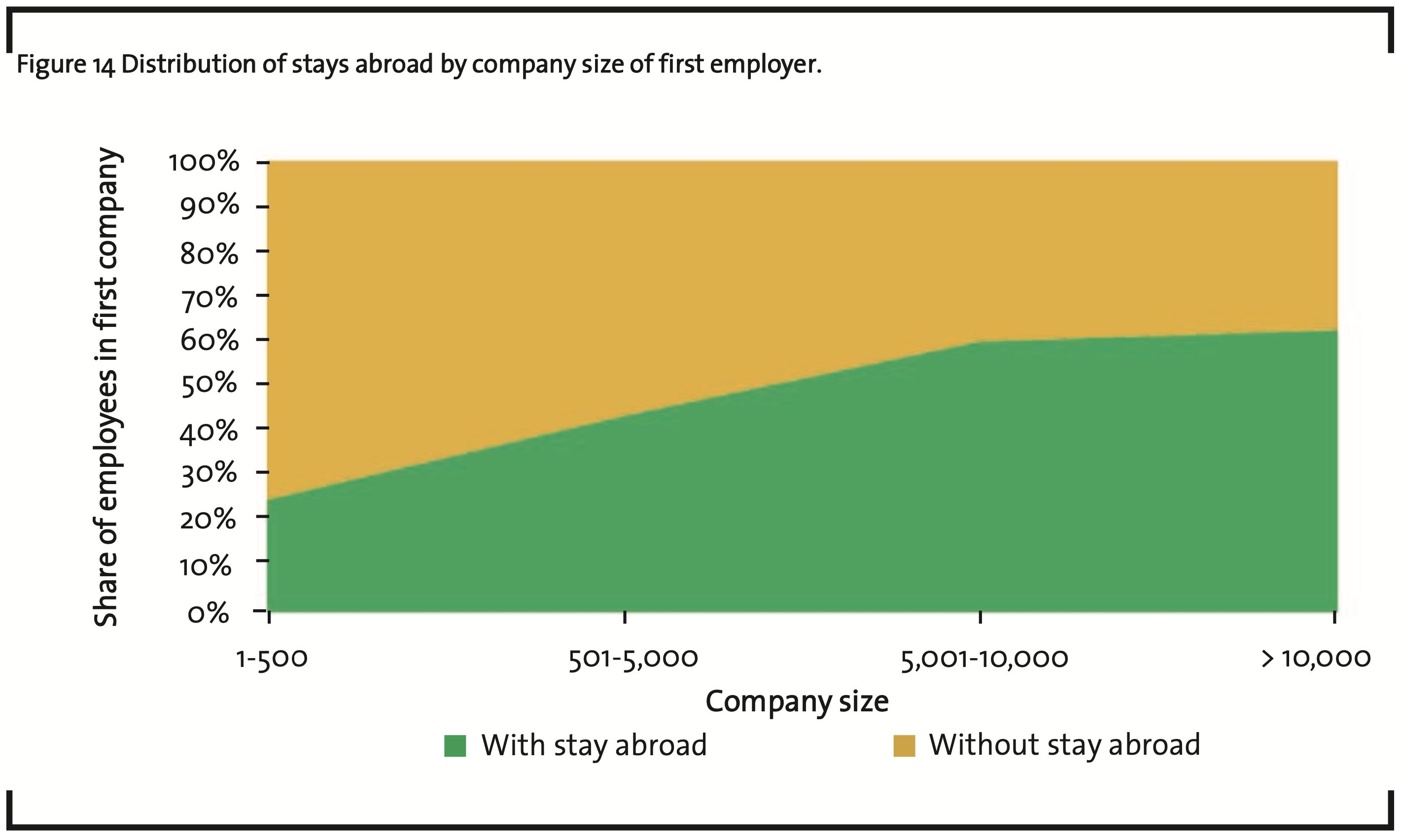Quo vadis Business Chemistry?
Abstract
For students of the interdisciplinary study program Business Chemistry, it seems challenging to identify career opportunities that fit their particular expertise, meaning a combination of both the chemistry and business world. This contribution’s goal is to observe and describe the status-quo of Business Chemistry in the DACH-region. In an online survey, 112 employed or self-employed graduates of Business Chemistry were asked about their qualification acquired during their studies and their first working positions. The results showed that most graduates did internships and studied abroad before starting their first job. Over half of the graduates stated to have found a first job after graduation within less than four months. Half of them started working in the chemical industry, the other half in related industries. They entered in various functions ranging from accounting to sustainability management. These results serve as orientation for students, employers and universities when evaluating qualification and potential career opportunities of Business Chemistry graduates.
1 Introduction
What happens after a student tells someone that he or she studies Business Chemistry? Nearly everyone who studies or studied Business Chemistry at some point experienced this reaction: The other person asks: “What is Business Chemistry and where will you end up working?”
Business Chemistry (German: Wirtschaftschemie) is an innovative study program which combines business skills and science competences. The interdisciplinary aspect is the main goal of the study program and fits the gap between market and sciences in the chemical and related industries. Although the possibility to study Business Chemistry started in the 90s, no universal definition of Business Chemistry can be found online or in books.
The study program Business Chemistry is offered at the following universities: Christian-Albrechts-Universität zu Kiel, Heinrich Heine Universität Düsseldorf, Hochschule Fresenius Idstein, Technische Universität Kaiserlautern, Technische Universität München, Universiteit Leiden (NL), Universität Ulm, Universität Zürich (CH), and Westfälische Wilhelms-Universität Münster. The program may be called differently but it always combines chemistry and business studies. There are different models depending on each university (see figure 1). Some of them offer the band model where chemistry and business studies are taught at the same time. Others offer a consecutive approach where the focus during the Bachelor is on chemistry and the Master focuses on business studies and a specialization in chemistry.1
Competences, sectors, and functions of chemists as well as of graduates with business background are broadly known; but how can this be translated to the working environment of a business chemist? The combination of the two worlds is a typical problem young business chemists face when applying for jobs and trying to prove to an employer the advantages of their education and background. The employer faces this problem from a different angle: Even if the employer has heard about business chemists before, in which functions could their interdisciplinary skills be applied?
As Junge WirtschaftschemikerInnen (JuWiChem2 – Young Business Chemists), we want to shed light on this area. We built a network of students and graduates with interest in the two fields of chemistry and business, which aims at representing the interest of students and graduates within the VCW3. Additionally, we want to demonstrate the broad possibilities with regard to jobs and further education for our target group and strengthen the positioning of Business Chemistry programs within the DACH4-region.
In order to do so, this article is one of the first steps to give an overview about common qualifications of business chemists and the positions in which they are employed after finishing their studies. The positions in which business chemists could work are only barely mentioned on some websites of the universities offering a Business Chemistry program.5 Beyond these websites, there is no data available. Hence, JuWiChem have decided to investigate: What does the career of a business chemist look like? To be more precise:
- Which additional qualifications of a Business Chemistry education are common and how are they achieved?
- How and where do business chemists start their first job?
- Which elements of education are relevant for daily working life?
The research design and the methodology are presented in chapter 2. The target group as well as the set-up of the conducted online survey are outlined. Chapter 3 introduces the results of the survey, divided with respect to the three guiding questions. Chapter 4 discusses the results. Finally, chapter 5 presents the conclusions and reflects on limitations.
2 Research design and methodology
The basis of the investigation is an online survey conducted among the broader JuWiChem network. In this article we only consider participants who shared information about their education and their first job after graduating.6 In order to answer the guiding questions, a survey questionnaire was developed. As there is little research conducted in this field, a descriptive design was chosen. The target group of this survey were students and graduates of Business Chemistry and practicing business chemists independent of their education. As the program Business Chemistry exists at universities of the DACH-region, the questions were posed in German. Participants were contacted through the network of the VCW and of our cooperation partners Gesellschaft Düsseldorfer Wirtschaftschemiker e.V., WiChem Forum Zürich, WiChem Kiel e.V., Wirtschaftschemiker der Universität Münster e.V., and social media such as Facebook, Xing, and LinkedIn.
The survey consists of three parts: general questions, questions pertaining to the period of education, and questions pertaining to the period of work. The education part focused especially on experiences abroad and professional experiences, e.g. internships. For the work part, we focused on the first jobs and the involvement as business chemist. Open and closed questions of qualitative and quantitative nature were asked.
The survey results were quantitatively analyzed using MS Excel. The definition of business chemists is based on the understanding of JuWiChem and narrowed down to a focus group. In the next chapter the results will be presented.
3 Results
Out of the 213 participants of the survey, 117 studied Business Chemistry (see figure 2). Graduates from other disciplines, e.g. chemistry, also consider themselves as business chemists based on their work activity. For this article, we only consider a focus group of 130 participants who graduated in Business Chemistry (either a B.Sc. or a M.Sc. degree7), in a combination of chemistry and Business Chemistry as well as in industrial engineering with focus on chemistry (Wirtschaftsingenieurwesen mit Schwerpunkt Chemie).
Figure 3 shows that from these 130 participants three participants were on job search at the time of the survey and 15 were doing their PhD. For this article a PhD is regarded as additional education, not as a first job. Therefore, only the answers of 112 industry employed or self-employed business chemists are taken into consideration.
In the DACH-region, 79% of the business chemists that participated in this survey graduated with a Master of Science from various universities. 17% of the graduates left university with a PhD and the remaining 4% with a Bachelor of Science. The universities that the participants attended include Chemieschule Fresenius Wiesbaden, Christian-Albrechts-Universität zu Kiel, FernUni Hagen, Heinrich Heine Universität Düsseldorf, Hochschule Fresenius Idstein, Technische Universität Kaiserlautern, Technische Universität Berlin, Universität Frankfurt, Universität Ulm, Universität Zürich, and Westfälische Wilhelms-Universität Münster. In the following we will take a closer look at what had not been investigated before: the nature and role of internships as well as studies abroad and the job entry of business chemists.
3.1 Common additional qualifications of a Business Chemistry education
As figure 4 illustrates, 86% of business chemists gained practical experiences through internships8. On average, each graduate conducted two internships.9 88% of the internships took place while students still studied (see figure 5). Out of the 96 participants, 44 reported to have done at least one internship during their Bachelor studies, 81 during their Master studies, and three during their PhD studies. This shows half of the graduates did an internship during their Bachelor, while 72% conducted at least one internship during their Master studies.
The graduates conducted most of their internships (56%) within the chemical sector as table 1 shows. Other internships were conducted in the consulting sector and related industries such as pharmaceutical, energy, water and environment. Within these sectors, the graduates worked in different functions. The top 10 functions by descending frequency are illustrated in figure 6: Marketing, R&D, business development, and innovation management are the most popular areas chosen for an internship followed by controlling, sales, market research, procurement, quality, and accounting. Other data of the survey shows that, if the number of internships is analyzed in relation to the company size, on average every third internship is conducted in companies with less than 1,000 employees.
Half of the Business Chemistry graduates (n=112) gained experiences abroad during their studies.11 Figure 7 shows that 6 out of these 56 graduates stayed 1-3 months abroad. 38 graduates stayed for 4-6 months, eight 7-12 months, and four 13-24 months. According to our survey data, Master graduates tend to spend a long time abroad, typically 4-6 months.
The data in figure 8 suggests that it is most common to study a semester abroad and/or write a thesis at a foreign university. 49% of the graduates that stayed abroad either took classes or wrote a thesis or even did both. Internships abroad are also popular amongst business chemists. Only 13% of the 56 graduates conducted a research project abroad. 7% did a combination of at least two of these options during the course of their studies.
3.2 Job entry for business chemists
After graduating with either a B.Sc., M.Sc. or a PhD, the 112 participants went directly into employment or self-employment (see figure 3). Figure 9 shows that after their graduation, 57 participants found their first job in less than four months. The data does not show a significant relationship between the time of unemployment and the year of graduation. Reasons for different durations, e.g. traveling between graduation and job start, were not investigated.
As shown in table 2, the distribution of industry sectors in which Business Chemistry graduates start their first jobs is similar to the sectors in which they did internships: Half of the graduates start in the chemical sector, 17% start in consulting, 12% in the pharma sectors. The remaining quarter of business chemists starts in sectors like public service, energy and environment, logistics, automotive, and banking, as well as IT. In some cases the graduates started in the same sector in which they interned. According to the survey results in figure 10, mostly out of all functions business chemists start their career in sales. This corresponds to 13% of the surveyed graduated business chemists. It needs to be taken into consideration that multiple-referencing of functions was possible since not every company has clearly distinguished functions as used here. Starting positions in business development (10%), R&D (8%), innovation management (8%), and marketing (8%) are also common as they account for over eight percent each of the surveyed graduated business chemists. The remaining 43% of functions are split between 19 other functions.13 This shows that there are some functions that are usually taken over by business chemists. However, the functions in which they could start working remain diverse.
Table 3 shows the function of internship in the left column and the function of the first job in the first row. The number in the matching field shows, for example, that four participants did an internship in controlling before starting to work in accounting as their first job. Combinations with four or more matches are colored green, combinations with two or three matches are colored orange. When comparing the functions in which business chemists interned to the ones in which they started working later on, some patterns can be recognized (see table 3). Usually at least one business chemist that started in a certain function has interned in this function before (see bold-out- lined cells within the table 3). The only exceptions are internal audit and quality; two functions in which only few business chemists did internships or started working.
The most popular functions for internships (marketing, R&D, business development, and innovation management, see figure 6) clearly have more matches to the functions where participants started to work since graduates usually did more than one internship but started working in only one job. This table clearly shows how diverse the experiences gained during internships were before starting the first job.
The number of participants stating their salary is below 100 (n=65). Therefore, the data is not representative for the initial number of 112 business chemistry graduates. It nonetheless gives an indication for graduates as well as for employers on the distribution of the starting salary14 by degree (see figure 11). Participants with a PhD have a gross annual salary over 60,000 € with some exceptions. Most graduates with a Masters degree earn between 40,000 and 60,000 € annually, only a few between 30,000 and 40,000 €. The few Bachelor graduates that stated their starting salary also earned a gross annual salary between 40,000 and 50,000 €. Other factors that could explain the difference in salary are sector, function, company size, and starting year.
We also investigated the companies business chemists started to work for, including company size (in number of employees). The participants that named their first employer started their first job at the following companies: A.T. Kearney, Accenture, Avery Dennison, BASF SE, BIOGRUND, BMW AG, Bosch, Brenntag GmbH, BYK-Chemie GmbH, Clariant, CONSTAB, Covestro, CTcon Management Consultants GmbH, Dow, DUPONT de NEMOURS, Dynamit Nobel AG, Evonik Industries, F. Hoffmann La Roche AG, Freudenberg Sealing Technologies, Frigoblock, Gustav Grolman, Henkel, HP, HSBC Internationale Kapitalanlagegesellschaft mbH, Husqvarna Group, IDS Scheer AG, ifb AG, Johanna Borgers AG, Johnson & Johnson, K+S AG, KPMG AG, Merck KGaA, Mettler-Toledo GmbH, Momentive Performance Materials, MY-CHEM GmbH, Ontex Mayen GmbH, PAUL HARTMANN AG, Perkin-Elmer Bodenseewerke, PWC, Retsch GmbH, Stockmeier Chemie, Sulfurcell Solartechnik, The Boston Consulting Group, Thyssenkrupp, Warth & Klein Grant Thornton, Werner & Mertz GmbH, Westfalen AG. Figure 12 shows that more than half of the graduates start working for large companies with more than 10,000 employees. A fifth of the participants starts working for small and medium-sized enterprises (SMEs) with up to 500 employees and another fifth for bigger companies with up to 5,000 employees.
3.3 Implementation of education in everyday work
Interestingly, 45% of the graduates answered that they work in a perfect combination between chemistry and business (see figure 13). 47% do more business related work where only 8% state that their work is more chemistry related. This is also reflected by the answers given to the question asking which were the most essential topics in their education with regards to their everyday work (see table 4). Many participants stated that the combination of chemistry and business as well as understanding the mentality and the way of thinking of each discipline played an important role in their education. Some graduates stressed the importance of courses such as innovation, strategic, project and supply chain management, new business development or marketing (see table 4).
Within academic education, the graduates mostly miss the practical orientation during their studies (see table 4). Additionally, project, strategic and quality management, marketing, statistics as well as corporate finance lacked during education with regards to their everyday work. Certainly this depends on graduation year and the university visited since offered courses vary.
4 Discussion
It is impressive to see that apart from actual business chemistry graduates, a large number of people with a different study program, such as chemistry or something else, consider themselves to be business chemists (see figure 2). It also would have been interesting to see what their education looked like in comparison to the ones that explicitly studied Business Chemistry. However, this exceeds the frame of this article and can be investigated within another setting.
The results of our survey show that the most common degree for business chemists is the Master of Science15. 80% of business chemists graduate with a M.Sc. and start working, compared to only 9% of chemistry students doing the same (GDCh, 2017). This comparison underlines that industry and other future employers are willing to employ Business Chemistry graduates without a PhD. Finishing with a Bachelor of Science is less common for business chemists than finishing with a PhD. However, it is possible that the number of Bachelor graduates (4) is underrepresented in this survey as from personnel experience of the authors and JuWiChem members more students start working directly after their Bachelor. A future survey should investigate this aspect in more detail. Based on personal experience and empirical value, the ratio between the three different degrees sounds reasonable.
4.1 Education in Business Chemistry
What does it mean for the education at universities that 86% of the graduated business chemists did on average two internships? It proves that most graduates consider internships as part of their education as a business chemist. The results of the survey definitely show that internships as well as experience acquired abroad are common qualifications of a Business Chemistry education. Using these results, the following paragraphs examine at which point of education which type of internships are appropriate for business chemists.
Two universities offering Business Chemistry include a mandatory internship in their Bachelor program that also gives credit points towards the degree. This shows that these universities consider internships and gaining practical experience as important as other courses. Within these internships, students can learn about the importance of developing soft skills and the practical application of the concepts taught at university helping them to understand their relevance. In times of tightly packed and strictly timed Bachelor and Master programs, mandatory internships offer students the opportunity to reflect potential options for their future after university. Additionally, a good letter of recommendation from an internship or a number of different practical experiences on the CV may serve as valuable entry ticket into the first job.
Independent of the mandatory internships in the Bachelor, 81 graduates conducted voluntary internships during the Master (see figure 5). This might be due to the fact that, especially during the Bachelor, the program conditions do not allow two to three months’ time for an internship. Lab classes as well as different exam periods are conducted during the lecture-free time to stagger the regular semester and exam preparation. Towards the end of the studies, when students realize that the job start is getting closer, students appreciate gaining practical experience and finding out what their professional future could be. As the survey results underline, students do two internships on average. This shows that they want to experiment and find out in which discipline their strength and passion lies. At university, the teaching focuses on learning and understanding concepts or techniques; the research aspect is high. The theoretical background of a concept and applying the concept in practice are completely different from each other. Only from knowing theoretical concepts, one cannot tell if working with and applying it really is the right thing for oneself to do.
When it comes to analyzing the sector and function of internships, Business Chemistry graduates conduct quite diverse internships. They did not only intern in the chemical sector. Half of them conducted internships within other sectors. The same diversity can be observed with the functions the participants interned in. Most internships, except the ones in R&D, are business related (see figure 6). This is in line with the perception of business chemists that work more business related (see figure 13). For the internship it might be due to the fact that most Business Chemistry programs focus on chemistry. They are curious to get to know the practical side of business outside of the laboratory. Or maybe when internships were conducted within the chemical or a science related sector, Business Chemistry students were preferably employed for more business-related functions due to their interdisciplinary skills. Business chemists bring along a scientific background as well as business knowledge and an interdisciplinary way of thinking which makes them useful as mediators and moderators in interface positions already within their internship. This aspect will be further discussed in relation to the job start in 4.2.
Our survey shows the importance of internships during the education as it contributes to the development of practical skills. A comparison with students of other programs is difficult as no data is available. For future investigations it would be interesting to learn why students want to do internships in general and especially in which periods within their studies.
In some cases internships are done abroad. With increasing globalization, study programs become more international. 50% of graduates stayed abroad for educational reasons. The data suggest that it is most common to take some courses abroad or write a thesis at a foreign university. This shows that stays abroad are a regular feature of education (DAAD, 2017).16
Figure 14 shows that graduates with study experience abroad tend to start working in companies that have a higher number of employees. From the graduates who started working for SMEs (1-500 employees) 23% gained experience abroad during their studies. The percentage of graduates with study experience abroad increases to 60% who start in big companies (over 10,000 employees).
Independent of the company size, at least 23% of Business Chemistry graduates stayed abroad for their education. This implies that it is relevant for all industries to attract employees that have intercultural competencies. Usually SMEs are experts in certain fields and have suppliers and clients from all over the world. Therefore, international experiences are valuable in nearly all professional domains. As company size increases, the number of regional affiliates and the number of colleagues from other countries increases as well. Hence, in bigger companies the intercultural competencies are needed to communicate with not only external but also with internal stakeholders. This might be one reason for the rising trend in figure 14.
Another explanation could be the language perspective. Learning and improving language skills is also an important factor when staying abroad.
As today even German companies use English as a corporate language, being fluent in English is expected from graduates. For employers this qualification can be shown not only by certificates but also by real life experiences, e.g. a stay abroad.
As far as we investigated, no Business Chemistry study program includes a stay abroad as a requirement. For business related studies, there are many programs that include international studies with at least one semester abroad. Is this necessary for Business Chemistry students as they compete with graduates from business programs? Our survey shows that despite the relationship between studying abroad and company size, not having this experience does not automatically lead to being disqualified, as graduates not having stayed abroad also start to work at large companies.
4.2 Business chemists in daily working life
Business chemists appear to need less than four months to find a job. From the data available, it was not possible to see a trend over time. Because of the economic environment, some years are known to have had freezes on recruitment. At this point, an interesting correlation between job start and membership of Business Chemistry network17 can be observed: Most of the survey’s participants were contacted through our JuWiChem network. 66% of the participants considered for this analysis are members of associations like GDCh, including VCW and JuWiChem, WiChem Kiel, WiChem Forum Zürich, WUM, and GDW where creating a network and getting into contact with possible employers is very much supported. Although the data do not show a valid relationship between the membership in one of the associations and a quicker job start, our finding is supported by the fact that 42% of the participants had been somehow in contact with their future employer before. 23% of graduated business chemists started their first job with a company where they interned before. This percentage increases to 37% if Bachelor, Master, and PhD theses are also taken into account. Other contact points with the company that first employed business chemists are recruiting events and workshops as well as cooperation between company and university. Independent of these thoughts, only very few survey participants have been searching for longer than a year. This proves that the industry values business chemists and the program clearly has its specific merits.
This also demonstrates that companies are interested in getting in touch with students during their studies to recruit potential future employees. How can they find the best talents for their company? By having them work for the company beforehand, so they can learn about the company, its portfolio and processes.
Business Chemistry graduates do not only start to work within the chemistry sector, although half of the graduates start working there. Other industries also appear to be interested in their qualification. This phenomenon might be similar to the one chemists face: The basic scientific mind-set as well as the expertise in chemistry, which forms a base for many other industries, is needed by many other industries. Therefore they employ chemists and apparently also business chemists. The broad education, analytical thinking, and the mediator role qualifies business chemists as employees for many sectors.
The data analyzed prove that business chemists start working in various functions. As of their definition and their area of responsibility, marketing, business development, R&D, and innovation management are closely related to each other. Table 3 underlines this statement, as the number of matches between these four functions is high in both directions. For example, from the 25 participants that conducted an internship in innovation management, five started working in R&D, six in marketing, and ten in strategy and business development functions.18 Of the business chemists that started working in strategy and business development, three interned in R&D before, ten in innovation management, and five in marketing. It also stands out that apparently internships in sales qualify before many other functions for the first job. Certainly a lot of personal preferences and experiences within the internships as well as the opportunities available after graduation play an important role in the relationship between functions of internship as to functions of the first job.
These functions all have one aspect in common: the scientific knowledge and the understanding of business are essential for these kind of jobs that build the interface between science and business. On the one hand they have the chemical background, the mindset of scientists and the analytical skills. On the other hand, they bring along the business comprehension or instinct and the knowledge about concepts. Combining these interdisciplinary skills qualifies them to act as mediators between scientists and business people.
Working interdisciplinarily is often required in big companies. They have large organizational structures where many functions, e.g. marketing and R&D, need to work closely together. The marketing department knows what the consumer needs and the R&D is aware of which technologies are feasible. Usually the employees working in these two functions have different backgrounds and mindsets. In some situations communication between these two functions is difficult. At an interface of those functions, business chemists can use their skill set and make a major contribution to the company’s success. The results of our analysis show that 52% of the Business Chemistry graduates start working in bigger companies with more than 10,000 employees. The other half works for smaller enterprises where business chemists can also make major contributions to the companies’ success. Especially in SMEs, business chemists, with their broad education and background of two disciplines, are needed. Since they do not have many employees, the ones working there are often responsible for several tasks and functions. For the graduates, it is a great opportunity to get the insight of many different tasks and challenges in just one position.
4.3 Implementation of education in everyday work
For 45% of the participants, studying Business Chemistry was an excellent preparation for their everyday work. They stated that they work in the perfect combination of chemistry and business. They took jobs at the interface where competences of both disciplines are needed. It appears natural that also some participants state that their work is either more chemistry or more business related.
However, it also depends on their personal preferences where they start working. The ones that state that they work in more business related functions even exceed in number the ones who work in perfect combination by 2% (see figure 13). Maybe working at the interface level could also be more business than science related because scientific understanding and mind-set are necessary. But when it comes to everyday work, it is often a business relat- ed task that needs to be performed. Alternatively, it is possible that companies do not know how to use business chemists correctly, as they do not work at the interface level. Another explanation might be that the participants just feel more comfortable in a more business related function. In order to better understand the distribution of the pie as shown in figure 13, a further survey should investigate why a certain answer was given.
The aspects that most participants consider essential for everyday work are the combination of business and chemistry as well as the learning and experiencing of each mind-set. The ground-work for that should be laid during their studies. This supports the thesis that business chemists are best suited to work at the interface between chemistry and business. Other participants value innovation management courses. Certainly for those who interned or started their first job in innovation management, this is true.19 But also for others, innovation management is important as companies are looking for innovations to drive further growth. Therefore, not only the ones working in innovation management need to be aware of the concepts behind it. In addition, the ones working in R&D, where innovations have to be created, need to be aware of such concepts, e.g. the innovation funnel.
The most named missing aspect within the education is the relation of studies to work practice. This points out the importance of internships as part of the education. Project management was further named as a missing aspect within the education. At the same time some participants named project management as essential. This shows the differences in the curricula of different universities. For marketing, the same is true. It is named as an essential and as a missing aspect. The scale up or the production was also named as a missing function, which is comprehensible, as most universities do not offer special course on production processes. Courses related to this function are not taught everywhere because universities usually focus on research and not on how to make it available to customers. An exception for this is industrial engineering where process planning is part of the curriculum.
5 Conclusion
Graduates of Business Chemistry increase their qualifications during their studies. The analysis of the survey data has shown that 86% of the participants on average do two internships before starting their first job. Mostly they are matriculated during that time and almost twice as many participants did an internship within their Masters compared to the Bachelor. 50% of them stayed abroad, usually for four to six months, mostly taking courses or writing a thesis at a foreign university. After graduation, most of the participants needed less than four months to start their first job. Half of the participants started within the chemistry sector; the other half entered related sectors such as consulting, pharmaceuticals, or energy. The overall distribution of employment sectors was similar to where participants interned. The functions in which Business Chemistry graduates interned and started to work range from marketing and sales over R&D and innovation management to controlling and sustainability management with a higher frequency in business related functions. Business chemists tend to work either in a perfect equilibrium between chemistry and business related topics or in a more business related context.
The research on sectors and functions that busi- ness chemists enter after graduation confirms the range universities describe on their websites explain- ing the program Business Chemistry to potential students. This article also indicated the importance of internships, even though no sound relationship could be proven between contact to the employer before the job start and time between graduation and job start. This might be due to the low sampling size and many variants, e.g. university, graduation year, and field of interest. In a following survey, the reasons for conducting internships should be investigated, e.g. why timing, function and sec- tor were chosen.
Current students and graduates can use this article for career orientation purposes. When no internship or job opening for business chemists is found, students – depending on their personal preference – can use the results to find interesting position. They can also use the answers of the graduates as inspiration for possible sectors or companies that already employed business chemists. The significantly short time to find a job may not only encourage them to pursue their studies and additional qualifications, but also to start networking and get in contact with possible future employers.
The employing companies and their managerial staff get a great overview about possible qualifications of business chemists. Depending on an applicant’s personal interest and previous experiences, a business chemistry candidate might be highly qualified for an open position, even though the company was not looking for a business chemist.
Universities can learn about which of their courses have an impact on the students from the results of this article. For example, they could use the results as an impulse for a redesign of the study program. Including mandatory internships, offering more opportunities to participate in other business courses than the ones available already, or offering workshops in cooperation with companies could be measures to be taken.
Acknowledgements
This research was supported by JuWiChem, VCW, Gesellschaft Düsseldorfer Wirtschaftschemiker e.V., WiChem Forum Zürich, WiChem Kiel e.V. and Wirtschaftschemiker der Universität Münster e.V.. We thank every participant of our survey who provided valuable insight and comments that greatly assisted the research.
We thank Dr. Kerstin Hansen, Fabian Sterzenbach, Katja Pöhlking, Kevin Bethke and Dr.Wolfram Keller for assistance with the questionnaire development and implementation into the online tool.
We would also like to show our gratitude to the first JuWiChem Bundesvorstand (Katharina Uebele, Katja Pöhlking, Lukas Eckl, Johannes Wunderlich) and the current JuWiChem Bundesvorstand (Julian Vogel, Melanie Walther, Jasmin Seifert, Sebastian Wahl, Ann-Katrin Mahling) for their support and for sharing their pearls of wisdom with us during the course of this research. We are also immensely grateful to Johannes Wunderlich, JuWiChem as well as Louise Dölger, WiChem Kiel e.V., for their comments that greatly improved the manuscript. The authors are exclusively responsible for all inter- pretations and conclusions in this article.
1 A comparison between the programs from different universities will be soon available on www.juwichem.de.
2 JuWiChem belongs to the VCW (Vereinigung für Chemie und Wirtschaft). Changes within the member’s structure showed that especially the position of students and gra- duates within the VCW is underrepresented. In order to strengthen their voice within the VCW, JuWiChem was founded in 2015.
3 The VCW is a working group within the GDCh (Gesellschaft Deutscher Chemiker). The GDCh has members from academe, education, industry and other areas and supports chemistry in teaching, research and application and promotes the understanding of chemistry in the public domain.
4 DACH-Region includes Germany (D), Austria (A) and Switzerland (CH).,
5https://www.studium.uni-kiel.de/de/studienangebot/studienfaecher/wirtschaftschemie-ba,
http://www.uni-muenster.de/Chemie/studium/wirtschaftschemie/mscwirtschaftschemie.html,
http://www.uni-duesseldorf.de/home/studium-und-lehre-an-der-hhu/studium/alle-studiengaenge-von-a-z/studiengang-informationen/studiengaenge/wirtschaftschemie-1.html
6 Although the survey also considered current students this article focuses on graduates and their career experience.
7 For clarity reasons in this article we will only talk about the Bachelor or B.Sc. which includes the former Vordiplom and Master or M.Sc. which includes the Diploma.
8 In our understanding internships only include internships and working student activities related to Business Chemistry.
9 All 112 participants conducted 226 internships, resulting in two on average.
10 Others include public service, banking and financial services, automotive, logistics and distribution as well as internet and IT sector.
11 Only stays abroad with regards to their education are considered.
12 Others include public service, banking and financial services, automotive, logistics and distribution as well as internet and IT sector.
13 The 19 other functions include: production, market research, IT, controlling, logistics, technical management, product management, applications engineering, procurement, inhouse consulting, sustainability management, accounting, finance, quality, administration, internal audit, human resources, savety protection, corporate communications & public affairs.
14 Only gradutes starting their first job as an employe after 2011 are taken into account. Out of this group only 65 stated their salary.
15 For clarity reasons in this article we will only talk about the Bachelor or B.Sc. which includes the former Vordiplom and Master or M.Sc. which includes the Diploma.
16 The number of stay abroad for study reasons increased over the last years.
17 The Business Chemistry networks include JuWiChem, VCW, Gesellschaft Düsseldorfer Wirtschaftschemiker e.V., WiChem Forum Zürich, WiChem Kiel e.V. and Wirtschaftschemiker der Universität Münster e.V..
18 Please notice that multiple referencing was possible for the function of the first job. Therefore someone who worked within a company where innovation management and business development are coordinated from the same team.
19 Only two participants out of seven who stated that innovation management is essential for their everyday work started their first job in innovation management.
References
Christian-Albrechts-Universität zu Kiel, (2018), Studieninformationsblatt Wirtschaftschemie B.Sc., available at https://www.studium.uni-kiel.de/ de/studienangebot/studienfaecher/wirtschaftschemie-ba accessed 15 January 2018.
Deutscher Akademische Austauschdienst, DAAD, (2017): Erasmus+Jahresbericht 2016, p.105.
Gesellschaft Deutscher Chemiker e.V., GDCh, (2017): Chemiestudiengänge in Deutschland – Sta- tistische Daten 2016, p.8.
Gesellschaft Deutscher Chemiker e.V., GDCh, (2018), Chemie studieren: Fachrichtung Wirtschaftschemie, Studium, available at http://www.chemie-studieren.de/fachrichtungen/wirtschaftschemie. html#tabs-1-2, accessed 15 January 2018.
Heinrich-Heine Universität Düsseldorf, (2018), Wirtschaftschemie (Master of Science), available at http://www.uni-duesseldorf.de/home/studium-und-lehre-an-der-hhu/studium/alle-studiengaenge-von-a-z/studienganginformationen/studiengaenge/wirtschaftschemie-1.html, accessed 15 January 2018.
Westfälische Wilhelms-Universität Münster, (2018), M.Sc. Wirtschaftschemie, available at http://www.uni-muenster.de/Chemie/studium/ wirtschaftschemie/mscwirtschaftschemie. html, accessed 15 January 2018.
